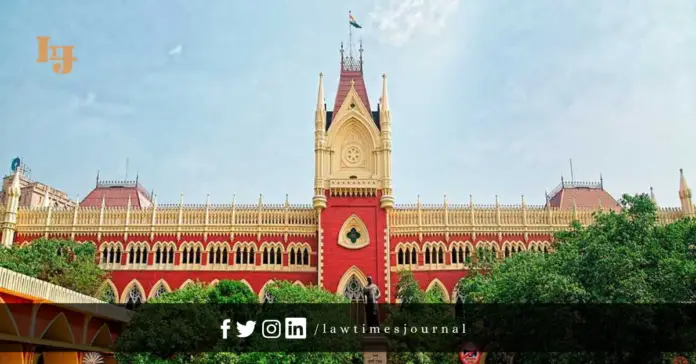
Justice Sabyasachi Bhattacharya of the Calcutta High Court observed that a person can be restrained from leaving the country on the basis of Look-Out-Circulars (LOC) only in exceptional cases, where there is an adverse effect caused to the economic interests of India. The Court, directed the Immigration Authorities not to restrain the writ petitioner from leaving the country on the basis of the LOC in question.
Prior Facts:
The review petitioner, a public bank, had cited an amendment to an office memorandum to argue that there were materials not considered while passing the order challenged. The Court, however, found no merit in grounds raised for review. The Court made the below stated observations while dismissing an application to review an order, whereby the Court had rejected a plea for the issuance of an LOC against persons who had joint pending liabilities amounting to about Rs 20 crores.
Taking into consideration the facts and circumstances of the instant case, the Court proceeded to reject the review application, observing that it did not encompass any exceptional circumstances to warrant viewing the default as an economic offence. Inter alia, the Court observed that the review petitioner had already succeeding in initiating SARFAESI proceedings against the writ petitioners.
Key Features:
- The Court proceeded to point out that if individual cases of defaults in commercial transactions are labelled “offences against the economic interests of India”, the same would “undoubtedly open a flood-gate of abuse.”
- The Court emphasised that such offences against the economic interests of India, have to be regarded on a higher footing than the mere default in individual loans on the basis of commercial contracts.
- The court also pointed out that offences warranting an LOC are those that would directly and adversely impact the share market or the economy of the country as a whole, destabilising the entire economy of the country.
- The Court proceeded to point out that if individual cases of defaults in commercial transactions are labelled “offences against the economic interests of India”, the same would “undoubtedly open a flood-gate of abuse.”
- The Court also observed that though in the present case, the quantum of default was quite high, the magnitude of the quantum is merely a relative expression and cannot be assessed as being “high” for all economic strata of society.
Judgement:
The High court held that, “if individual cases of defaults in connection with commercial transactions are started to being labelled as offences against the economic interests of India, the same would undoubtedly open a flood-gate of abuse”. The Court added that a “balance has to be struck between the liberty of the individual citizen and the power of the Government to curb the same under reasonable circumstances.”
The Court noted in the order that, “An [Economic] offence, to put a dent on the economic interests of India as a country, has to be such that either the economy of the country would be jeopardized by such person leaving the country and/or the offence would hit at the root of the economic system and/or the market itself, including the share market”.
The Court cautioned that, “in the event the provision of issuance of LOC are being permitted to be used rampantly as a substitute of execution proceedings, the personal liberty of Indian citizens could potentially be jeopardized and a flood-gate will be opened, giving the government and other public authorities a handle to wreck vengeance on the citizens of India by using the provisions of the office memorandum regarding issuance of LOC to hinder the personal liberty of all citizens merely on the ground of commercial loans being defaulted”.
The Court, directed the Immigration Authorities not to restrain the writ petitioner from leaving the country on the basis of the LOC in question.
Edited by J. Madonna Jephi
Approved & Published – Sakshi Raje
Reference:
- Case of UCO Bank vs Dr. SitenSaha Roy, RVW 23 of 2020 With CAN 1192 of 2020 With CAN 1194 of 2020 With CPAN 85 of 2020 in W. P. No. 23412(W) of 2019, decided by the Calcutta High Court on February 06, 2020.








